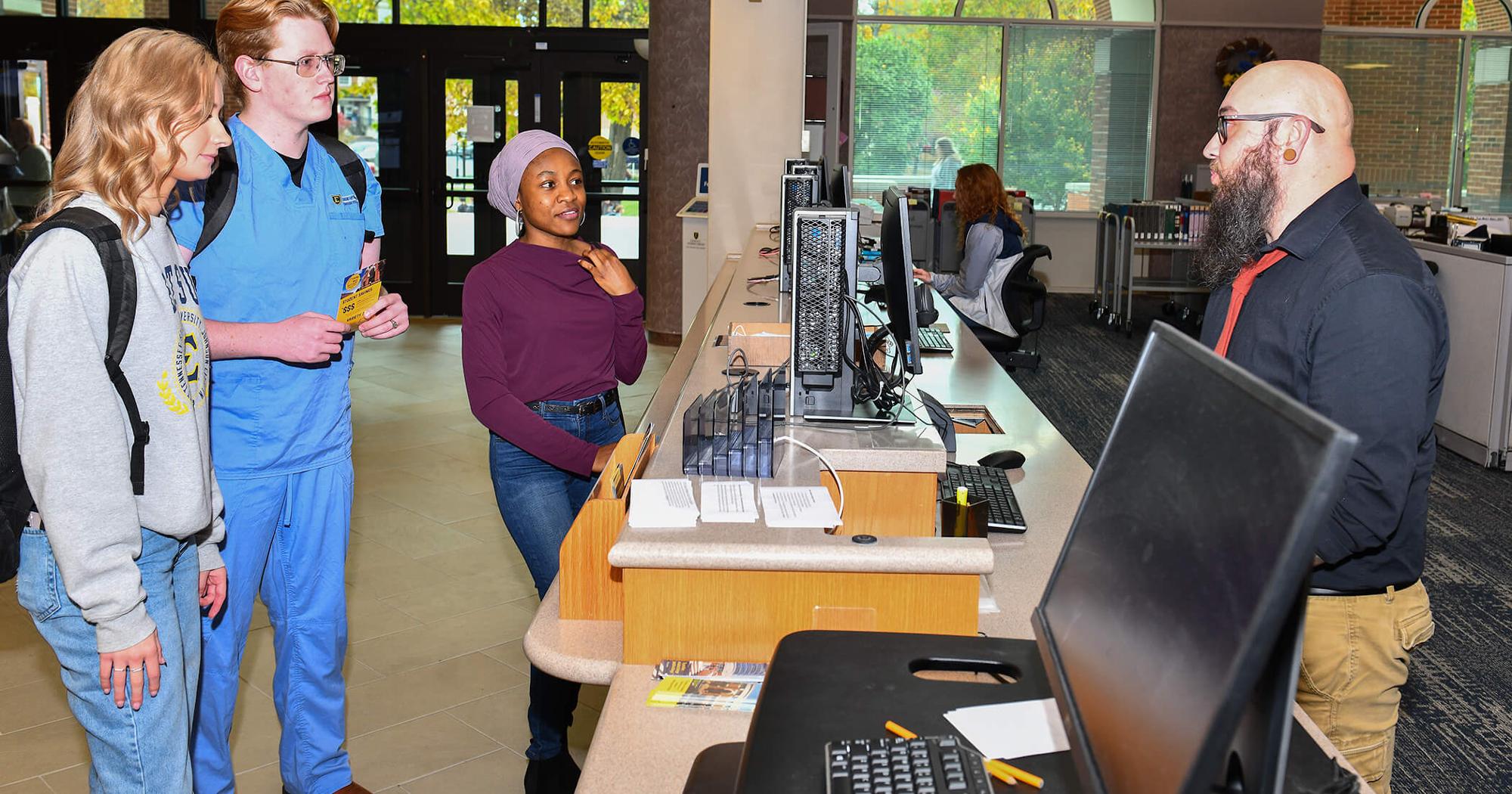Sherrod Library reaches out in many ways to support students, faculty
"We want to make the library part of the campus community, and outreach is a big part of that." -- David Atkins, Dean, Sherrod Library
Academic libraries come with a built-in clientele. Students must write term papers, after all, and faculty use library resources in course preparation and research. But with the constantly changing technology and methodologies, it can be hard to keep up with the myriad ways to use the library.
Staff at the Sherrod Library of East Tennessee State University work hard to help students and faculty stay on top of it all. To do this, the library engages in two different kinds of outreach, according to David Atkins, dean of the Sherrod Library.
“First, we support students and faculty with their research and teaching, letting them know what resources and services we have that can help them,” he said. “When a faculty member is working on a new course, they may not realize we can make sure we have the books and journals that they need. Or we can meet with the students in the course to show them how to use the new database that is required for the course.
“We are also there to connect with the students and faculty not only in the classroom, but informally on their own time,” he continued. “A lot of times, when students get here, we might be the biggest library they’ve ever used, and they walk in and say, ‘Where are the books?’ We try to make the library smaller, homier, let them know there are people who can help them. We do outreach to demystify the library and connect with the students.”
A big way of making the library less “scary” and helping students – and faculty – learn about its offerings in manageable chunks is the “Library 101” series of “how to” workshops. In these 30-minute online sessions, librarians share how to navigate the website, search databases, begin academic research by subject mapping, use annotated bibliographies, cite sources, and more.
These “101” workshops, which vary each semester, are great for supplementing the information literacy sessions librarians present during specific courses and “bridging the gap” for students whose courses do not include the sessions.
“Some years ago, a student approached me after a third-year psychology class exclaiming how much they learned and how they wish they’d known all the things I taught that day in their first year,” said Rebecca Tolley, director of Research and Instruction Services at the Sherrod Library. “Joining the library’s ‘101’ workshop series helps students help themselves as much as possible until they reach a learning boundary they can’t surpass alone.”

The second goal of the Sherrod Library’s outreach is community-building.
Students can get together to both study and socialize over coffee and snacks in the open seating area on the library’s first floor or gather in study rooms and spaces on the upper floors. In the spring semester, the library will welcome Dunkin’ Donuts in place of Einstein’s, which has served library patrons for several years.
Students as well as faculty and staff may also take part in workshops that focus on specific resources and services of the library, as well as special interest meetings.
One such activity is the new Coffee and Creative Writing group led by librarians Lydia Gwyn and Sarah Bull, both of whom are also writers. In this monthly meeting, participants interested in any type of creative writing can enjoy coffee and snacks while penning what comes to mind with writing prompts, and then share their work with each other.
Another activity, now in its fourth year at the Sherrod Library, is the Diverse Characters Book Club, which meets in-person with a Zoom option twice each semester. Angie Thomas’ debut novel, “The Hate U Give,” is this semester’s book. The first 30 who register each fall get a free copy of the book selected as the focus, and participants get together and discuss the readings.
Later in the fall semester, the Sherrod Library will host a variety of activities to help students “destress” and have some fun during the last week of classes before final exams. Board games, coloring, origami and the always popular service animals will be featured to give students a break from the books. Snacks will be provided, as well as an evening of “Random Acts of Pizza.”
In the spring, a Valentine’s Day Bash, a Rare Books and Regional Maps event, and a 25th anniversary celebration of the current Sherrod Library building are planned.
“What’s great about libraries is not only do we support research and teaching, we also support informal learning and just hanging out,” Atkins said. “We have fun events to connect with the students. We want to make the library part of the campus community, and outreach is a big part of that.”
To learn more about the Charles C. Sherrod Library, visit libraries.etsu.edu or call (423) 439-4307.
_______________
East Tennessee State University was founded in 1911 with a singular mission: to improve the quality of life for people in the region and beyond. Through its world-class health sciences programs and interprofessional approach to health care education, ETSU is a highly respected leader in rural health research and practices. The university also boasts nationally ranked programs in the arts, technology, computing, and media studies. ETSU serves approximately 14,000 students each year and is ranked among the top 10 percent of colleges in the nation for students graduating with the least amount of debt.
Stay in Touch
Follow ETSU on Social